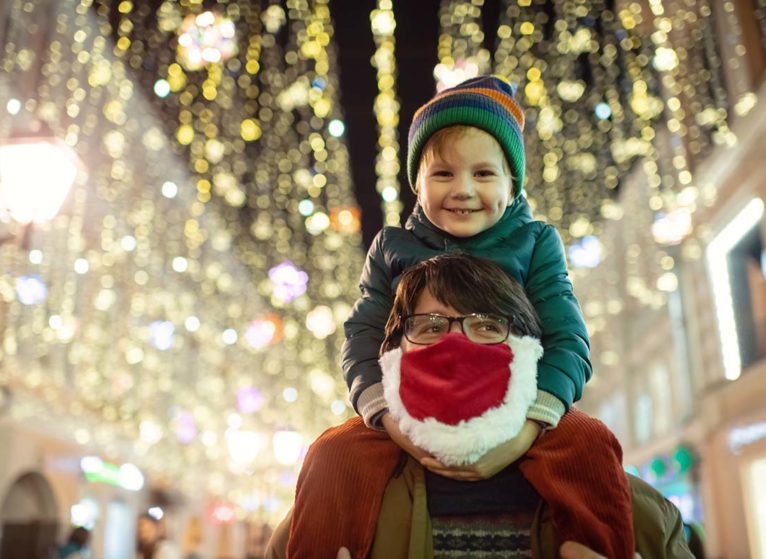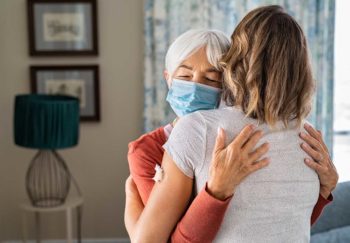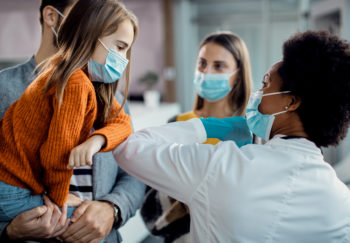In the warmer months, most of us found low-risk ways to see friends and family during the latest surge of COVID-19. We stayed outside, kept gatherings small, and followed the masking and social distancing recommendations.
But now that the weather is getting cooler, you may be questioning how to safely gather with friends and family this holiday season. The good news: We’re in a better place this year compared to last in terms of the number of COVID infections because of the vaccine.
Yet, we haven’t reached a point in which we can become complacent. Only around 58% of Americans are fully vaccinated, according to the Centers for Disease Control and Prevention. Kids ages 5 to 11 are just now getting access to the vaccine. Plus, breakthrough infections do happen among those who have been vaccinated. And there are still a lot of unknowns about future variants, so doing all we can to limit transmission is still important.
10 Tips to Avoid COVID Over the Holidays
We spoke to pediatrician Debbie-Ann Shirley, MD, and Joshua Eby, MD, two infectious disease specialists, to get the latest science-based recommendations for reducing the risk of exposure to COVID.
1. Get Vaccinated
The best way to protect yourself and your loved ones from COVID is to get vaccinated. Everyone ages 5 and up is now eligible to get the shot. You should also get a booster if you:
- Are 65 or older
- Are immunocompromised or at greater risk for complications of COVID
- Live or work in high-risk settings
- Received the Johnson & Johnson vaccine
If you haven’t been vaccinated, you should receive your first shot a minimum of five weeks prior to any family gathering if you get the Pfizer or Moderna two-dose vaccines, advises Shirley. For the one-dose Johnson & Johnson vaccine, plan to get vaccinated at least two weeks prior.
2. Limit the Size of Holiday Gatherings
It’s still a good idea to keep your gatherings small. This is especially true if some friends or family members are at higher risk for serious illness due to their age or other health problems.
3. Mask Up
Air circulation is limited indoors, which increases the chance of disease transmission. So if you and your loved ones will be inside together, encourage everyone over age 2 to keep masks on. This is particularly important if you have little ones who aren’t eligible for vaccination or for those who are more vulnerable to illness, says Shirley.
4. Dine Outdoors
Take your holiday celebration outdoors, especially for activities like eating or drinking that inhibit masking. Although outdoor activities are not completely risk-free, they are lower risk. Increased airflow reduces viral particle concentration in the air. If it starts to turn cold, consider a firepit or outdoor heater.
5. Limit Travel
If you don’t need to travel, don’t. If you do, Eby recommends traveling by car or plane rather than bus or train. Wear a mask throughout travel. Bring a personal bottle of hand sanitizer and use it frequently.
6. Limit Alcohol Consumption at Social Events
Alcohol consumption can lead to a false sense of security. You’re more likely to remove your mask and forget to take other precautions like social distancing.
7. Skip Having the Kids Sit on Santa’s Lap
If Santa is part of your holiday tradition, consider skipping the lap-sitting and pose next to or in front of St. Nick for photos instead. The fact is, Santa comes into contact with a lot of people, making this a high-risk activity during a pandemic.
Get the COVID Vaccine
For full protection, get your first two-dose vaccine at least 5 weeks before a family gathering.
8. Keep Washing Those Hands
We all know the drill by now. But here’s a refresher (PDF), just in case.
9. Be Creative
Switching up your holiday routines for another year may not be something you’re looking forwad to, but Eby suggests finding new ways to make these holidays special. Maybe extra decorations are in order this year, or you can perfect a new recipe, or create new table settings. “Think creatively to enjoy this new normal,” he suggests.
Bonus: Get Your Flu Shot
One of the non-COVID-19 viruses circulating will be influenza. The best way to prevent it is to get your flu shot. Fewer flu cases overall generally means fewer hospitalized flu patients, too. That means more care and beds are available for those who end up seriously ill with COVID-19.
This post was originally published in October 2020 and updated in November 2021.


